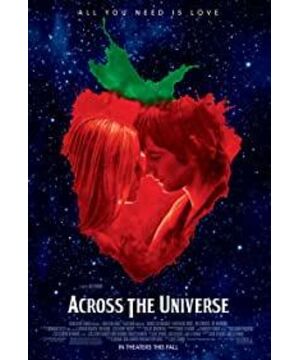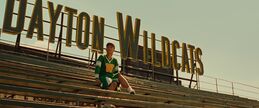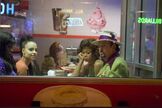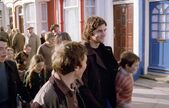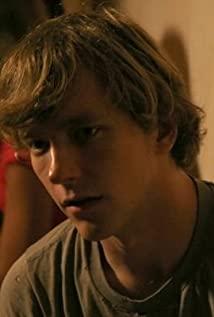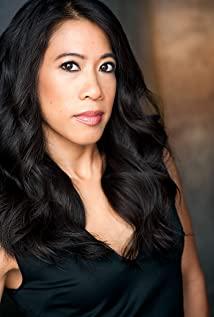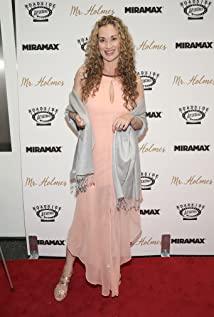"Across the Universe"
At the turn of the century, various summaries of the 20th century are the most popular fashion. I still remember a magazine that wrote about European and American music in the 1960s: “The Beatles invented the melody, and Bob Dylan invented the lyrics.” More than 40 years ago, it was them, and many others. Together with other talented young people, they have created countless outstanding songs, redefining the meaning of popular music, and injecting dreams and vitality into a whole generation. Today, forty years after the European Red May, we have a more than two-hour movie composed entirely of their music, Julie Taymor's "Across the Universe." the Universe). It started with the narrative of a young man named Jude and ended with an open-air performance by a band on the roof of a skyscraper.
Why?
Why would I spend eight dollars to see an interpretation of the popular songs of the 1960s? The young people who threw Molotov cocktails and distributed flowers on the street were in their 50s and 60s. Sitting on Capitol Hill and the president’s room, they listened to the protesters of the new century humming "Blowing in the Wind." the wind); They don't need a movie like this, I'm afraid they are already past the age of watching movies. The new generation of young people already have their own music. Perhaps the thing they are most tired of seeing is a movie that reproduces the youth of their parents.
Soon after the end of World War II, Hollywood made a lot of nostalgic movies with music from 40 years ago, because those songs reminded people of the good times of ease and innocence in the threat of nuclear war. Today, people use the music of the 1960s to make movies, probably because in this era of yuppies and the Internet, they remind us of those truly turbulent and truly exciting days. The hairy boys at that time really tried to change the world. "The Beatles invented the melody!" "Bob Dylan invented the lyrics!" In Europe, Sorbonne students refused to go to class-"Below the sidewalk is the beach!"-They picked up the floor tiles on the sidewalk Smashed at the heavily armed police. Young people in the United States are also marching, opposing war, fighting for civil rights, and rebelling against all values that can be rebelled; they straightened their chests and planted flowers into the muzzle of the black hole. Unlike today's young people, they are idealistic, they are desperate, they are impulsive and poetic, and they are cool.
Perhaps this is the whole reason why Taymore made "Through the Universe": we have the complete works of the Beatles, and we have a cool sixties-demonstrations, assassinations, Che Guevara, etc. etc. Why don't we remove the annoying, serious and unpleasant parts and mix the rest with creamy chocolate to make a movie that everyone loves? Tymore has produced Broadway musicals, operas, and movies; his team includes T-Bone Burnett (T-Bone Burnett), who once wrote "Oh, brother, where are you?" "(O Brother, Where Art Thou?) The genius who made platinum records; we also have a group of young, handsome actors and actresses. This is really a natural work.
Then, we have "Across the Universe", an extremely rare perfect disaster. It is like a dinosaur that appeared in the city of the 21st century, with perfect details in every aspect, and at the same time showing its dislocation and incompatibility in every aspect.
In fact, although the film does not lack guest appearances by modern celebrities — Salma Hayek’s performance is much more interesting than Bono — there are no beatles in "Cross the Universe." The image of a musician or any other real musician in the 1960s is full of symbolic names and events. Jude is a shipyard worker from Liverpool. He came to Princeton in the United States alone to find his father, and got acquainted with Max, who was about to drop out of school, and his beautiful sister Lucy. When they came to New York, they met Sadie, a sexy landlord and rock singer, followed by black guitarist Jojo and lesbian Prudence. We will see these characters in New York go through all the major events of that era: student movement, race riots, anti-Vietnam war, black panthers, homosexuality, and of course pop music. Sadie’s Prudence will one day lock herself in the closet, and Jude, Max, and Lucy will sing a song to persuade her to come out-what else can there be except "Dear Prudence"? And, what could sum up a movie full of Beatles songs and the protagonist named Jude better than "Hey Jude"? Oh, right. In fact they have a better idea. What marked the end of the Beatles era? Their last performance was in the open air on the roof of the skyscraper. Why don't we end the film with an open-air performance and let Jude sing their love to Lucy? "All you need is love", we all know which song Jude will sing, "All you need is love". Love and ending, the film ends with that era.
What did we see? We saw trivial video clips depicting demonstrations, marches, and unrest; we also saw 33 Beatles song MTV re-recorded (two of which had no lyrics). Do these four Britons have anything to do with what happened in the United States? Not at all. While all these incidents in the United States happened, they were making their music in a recording studio, and they were smoking their marijuana in India. Defenders of the Beatles can of course argue that the Beatles’ music expresses the spirit and soul of that era; but the problem is that this film has no spirit and soul except for the music of that era. The whole story is basically a boring cliché except for the actors' beautiful faces. Matching this story to the music of the Beatles is almost like matching jazz to the three Musketeers.
The entire "Through the Universe" seems to be constantly breaking your expectations: whenever you doubt whether the director can be more pretentious and playful with words, Taymore's next shot will exceed your imagination. It doesn't take much time that even the most discerning audience has to start joining Tymore's game-because the film's images and music are undoubtedly showing an absolute master level. In her hometown in Ohio, Prudence looked at her unreachable cheerleader, passed a group of rugby players flying in the air, singing "I wanna hold your hand" infatually. When Max arrived at the conscription camp, the gendarmes wearing Uncle Sam's masks proclaimed "I want you" beside the recruits. Perhaps the boldest and most outstanding adaptation is the fast-paced and colorful "I have just seen a face" in a bowling alley. What are these young people doing and thinking about? Nobody knows. No one cares.
Milan Kundera once described Paris in 1968 in this way. "College students dig up the road, overturn cars, and set up roadblocks; the way they break into this world is so beautiful and noisy, accompanied by tear gas and flames.... But just one kilometer away, On the other side of the Seine, the old masters of this world are still living their own way. The hustle and bustle of the Latin Quarter seems so far away to them. Dreams are reality, college students wrote on the wall, but it seems that the opposite is true: this so-called Reality (barriers, cut trees, red flags) is the dream." Forty years later in 1968, in front of "Across the Universe", this cruel comment almost seemed too warm. Whether it was the reality, dreams, passion, thinking, and even life of the year, they all evolved into a few melodies, some images, protest slogans, and excuses for sex, and they all became nothing more than the seasoning for a music show. "Under the sidewalk is the beach." Guy Debord, who said this, shot his heart with a pistol in 1994; when he died, not only was his dream shattered, he struggled back then. The battlefield itself no longer exists. Julie Taymour’s "Across the Universe" inherited and carried forward the essence of the music of that era, and at the same time completely stripped away all the meaning of the times that they represent; perhaps it could become an irony to Gal Debold Elegy
http://maxsnoopy.spaces.live.com/blog/cns!8C82EDA920C2E20C!1442.entry
View more about Across the Universe reviews


